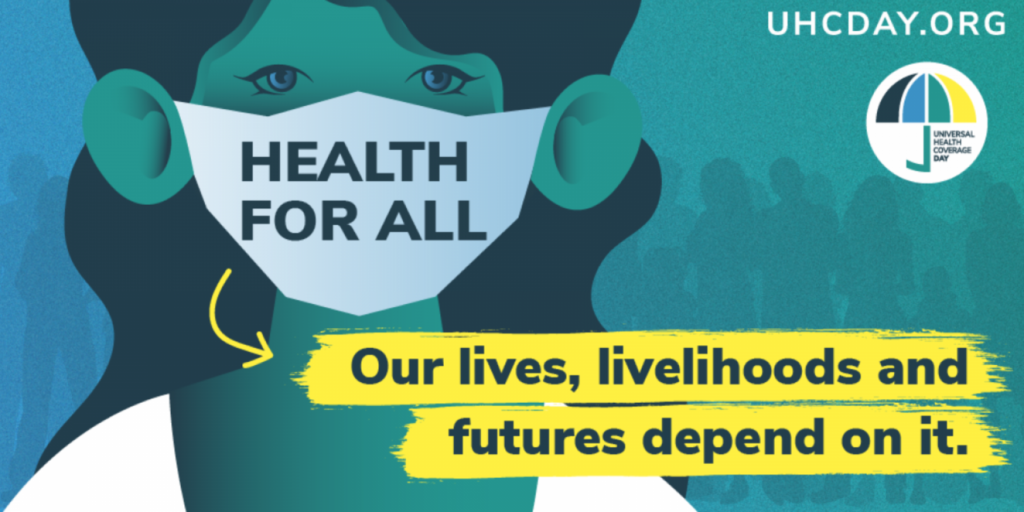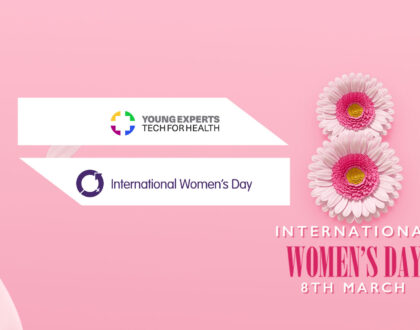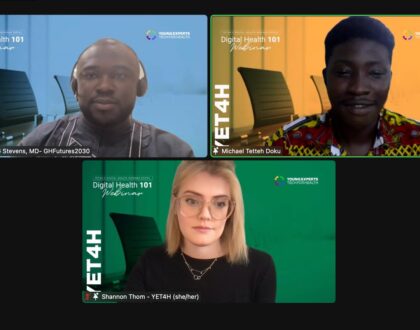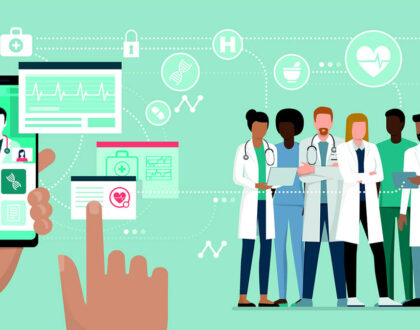Digital Health and Data Hold the Key to UHC: Reflections on UHC Day 2020

Author(s): Frank Smith, Campaign Lead, Transform Health, @FDSmith_
Health has been front and center of most people’s thoughts and actions over the last year. The joint effort and solidarity requested of populations and communities across the world to slow the spread and address the pandemic is a testament to what can be achieved when public understanding and political will converge to confront a common threat. That same convergence is now needed to ensure we achieve universal health coverage (UHC) by 2030.
The vast amount of resources mobilised to address COVID-19 was made possible because most people and politicians agreed with the science that this particular pathogen needed to be addressed. Science has been making the same pleas for action for maternal, newborn and child health, malaria, HIV and AIDS, antibiotic resistance and a host of other threats. However these have tended not to be prioritised, largely because the health impact of these conditions have tended to disproportionately affect marginalised and underserved populations. It is time we address this by redoubling efforts to ensure health for all by extending UHC.
The vast amount of resources mobilised to address COVID-19 was made possible because most people and politicians agreed with the science that this particular pathogen needed to be addressed.
UHC aims to ensure “all people have access to needed health services (including prevention, promotion, treatment, rehabilitation and palliation) of sufficient quality to be effective while also ensuring that the use of these services does not expose the user to financial hardship.” Leaders across the world committed to achieving UHC by 2030 as part of the Sustainable Development Goals (SDGs). On current trends at most 63% of the global population will be covered by 2030 according to the WHO. Countries across sub-saharan Africa are projected to lag furthest behind, most will struggle to achieve 50% coverage by 2030.
On 10 October 2019, world leaders reaffirmed their commitment to UHC, shortly afterwards the first cases of COVID-19 started to emerge. COVID-19 has brought into sharp relief the interconnected relationship between people’s health and therefore the need to protect everyone in order to protect each one of us. The notion that other people’s health is their business has, for the moment at least, been dispelled. When it comes to infectious diseases, we are all in it together and we all have a role to play.
There is a danger that this salutary lesson gets forgotten now that we have discovered a vaccine for COVID-19, and that this latest pandemic is considered another specific disease needing a specific response, rather than a broader health challenge. It would be easy for politicians and the public to think that now we have a vaccine, we can return to a business as usual approach and hunker down in our national and disease or health specific silos. This would be a mistake.
Now more than ever we need to build on what we have learnt from the COVID pandemic – the health of others matters to us all – be they other people, groups or nations. We need to ensure UHC as much to secure the health of our own communities as that of others. The best way to achieve this is to leverage the potential offered by digital technology to accelerate primary healthcare coverage for all.
It would be easy for politicians and the public to think that now we have a vaccine, we can return to a business as usual approach and hunker down in our national and disease or health specific silos.
We also need to rebuild the trust between politicians, technical experts and the general public. One way of achieving this would be through the development of a global framework that governs the use of health data for public good. This would provide clarity on the use of data and ensure digital technology is able to leverage the vast amounts of data in an equitable, transparent and non-discriminatory manner to serve public health interests. This requires a new social contract between politicians, technical health experts and the public. This can only be done if all sectors are at the table – youth, women and representatives of marginal communities in particular, many of whom have been excluded from decision making on health issues that impact on their lives.
As we look back over the last year, 2020 will strike many as an annus horribilis; however this year will also be remembered for the accelerated adoption of digital technology in health. World leaders now need to seize the initiative and work together to digitally transform the health sector to ensure it is maximising the full potential of health for all in the digital age.
Recommended Posts

YET4H marks International Women’s day
March 29, 2023


